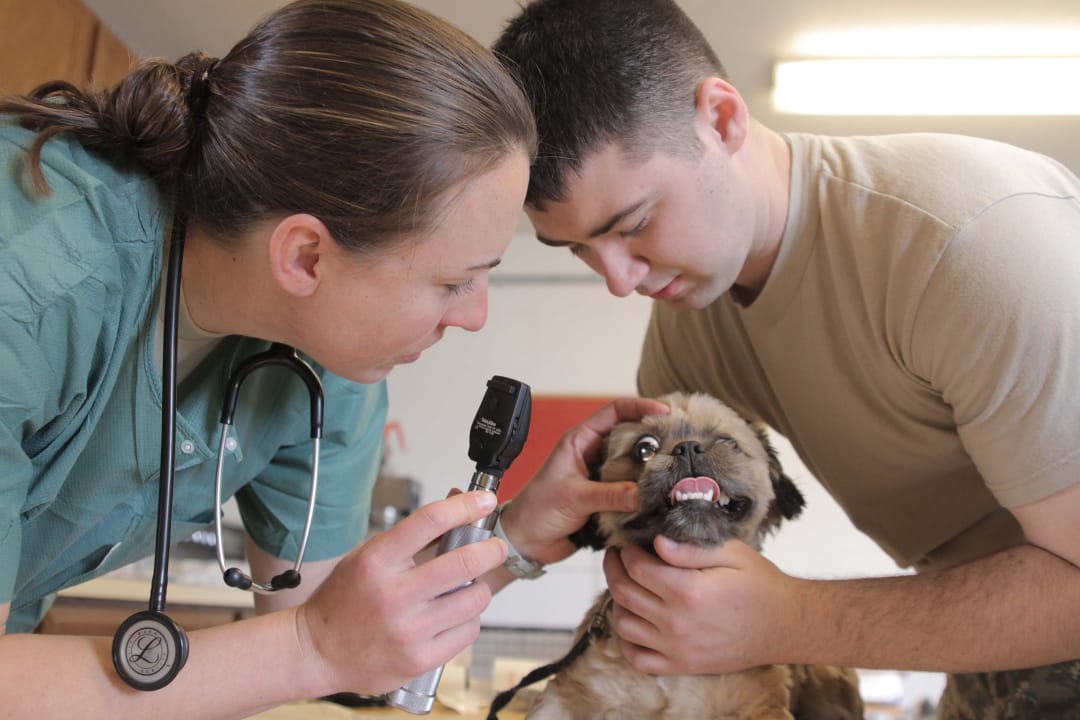
Whether you’re a first-time dog parent or an old hand at raising pooches, there’s always something new to learn. In this post, we’ll talk about some important dog health tips gathered from dog lovers, experienced pet parents, and veterinarians.
Did you know that over 50% of the dogs in the United States are obese? Just like humans, obesity in dogs is on the rise. Vets say that overweight and obese dogs are at risk of a wide range of health conditions such as cardiovascular disease, metabolic disorders, poor immunity, joint problems, and more. Also, being overweight makes dogs be less active and less mobile.
While those puppy dog eyes can be hard to resist, you’re not doing your pet any favors by giving him table scraps or over indulging him with treats. Choose healthy treats, limit portion sizes at mealtimes, and don’t give in when he asks for food at the table.
Basic grooming practices like brushing your dog’s teeth, brushing the coat, cutting nails, and checking the ears and paw pads are important measures that not only keep your pooch looking her best but also keep a check on her physical health.
Regular grooming ensures that you don’t miss early signs of any problems with your dog’s skin, coat, mouth, ears, and paws.
It’s important to have a professional examine your doggo for health issues at least once a year. Many health problems in dogs are easily treatable if caught early. To enjoy the companionship of a healthy dog for many years, make an investment in yearly vet checkups.
Regardless of age and breed, your precious pooch can fall ill. Unfortunately, your dog cannot tell you his symptoms, which means you have to be all the more vigilant for signs that something may be wrong.
Some of the signs that your dog may be sick include bad breath, excessive drooling, loss of appetite, excessive thirst, change in activity levels, sleeping more than usual, diarrhea, vomiting, itchy skin, sores, lumps, dry eyes, or dry nose.
Emergencies and accidents can happen, and to keep your dog safe, it’s vital that you’re prepared. This is important both at home and when you take your dog outdoors, such as on hiking or camping trips.
As a responsible dog owner, you should have a first aid kit always on hand, which should include at least the basics such as OTC antibiotic ointment, absorbent gauze pads, cotton balls, adhesive tape, ice pack, scissors, tweezers, turkey baster or oral syringe, small flashlight, clean towels, alcohol wipes, saline eye solution, and styptic powder to stop bleeding. Also, make sure you save your vet’s emergency contact number and local vet ER numbers.
Nobody wants to think about the worst-case scenario, but emergencies can happen and it makes sense to be prepared. Should anything happen to you, it’s important to have information for your dog’s care readily available to people who might step in to care for your pet.
Write down key information like how often and what your dog is fed, how often they’re exercised, and their vet’s contact numbers. Give this information to at least two individuals who live nearby and are willing to care for your dog if you are temporarily unable to do so yourself.
24 March, 2022